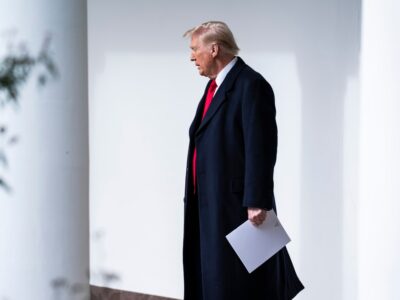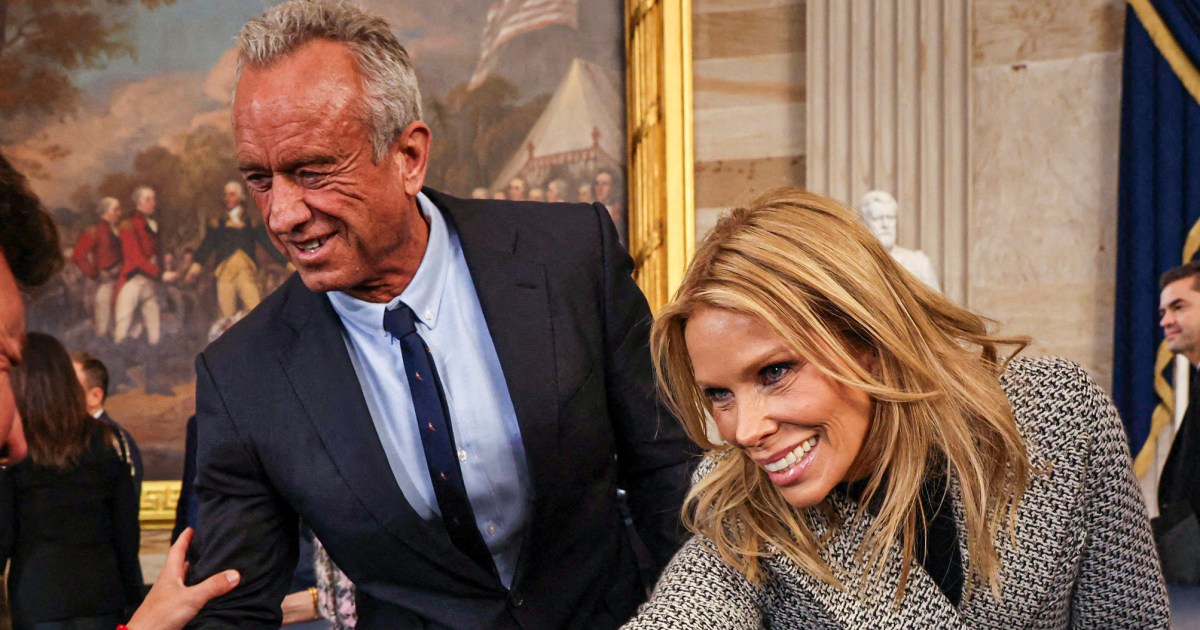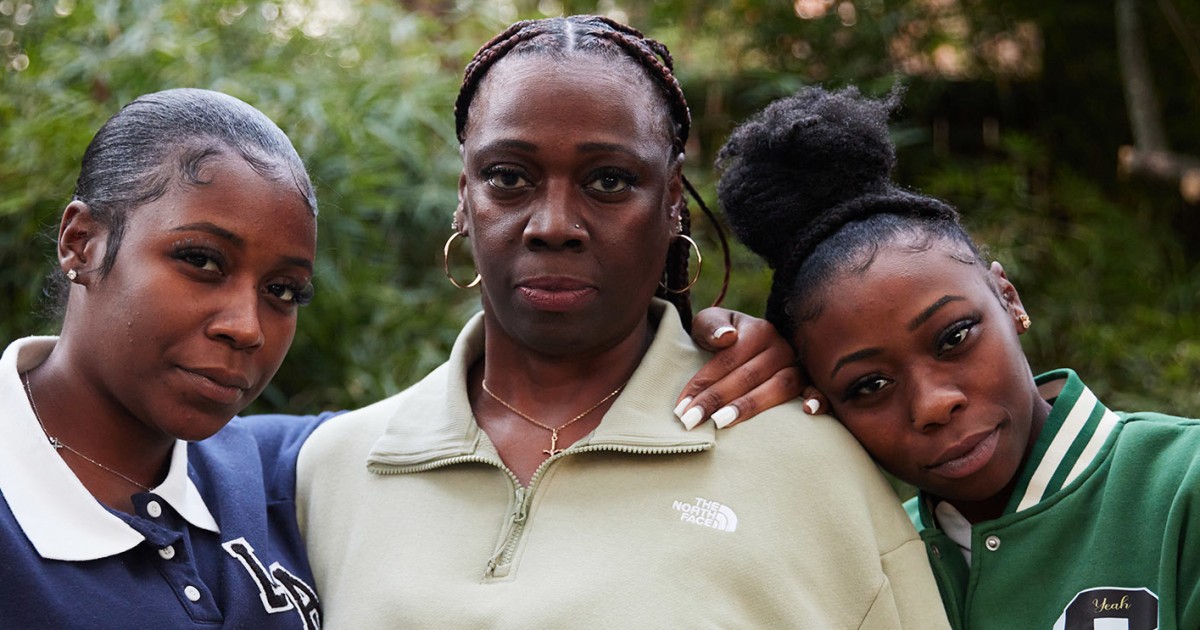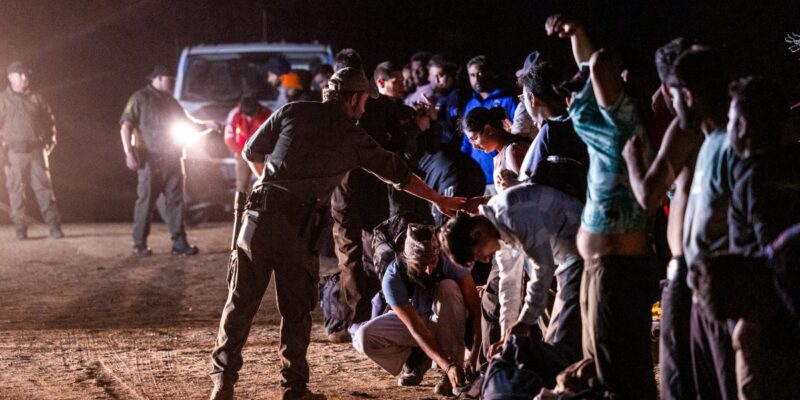
LOS ANGELES — The resistance promised by blue state governors after the election of Donald Trump is beginning to take shape as city leaders, advocacy groups and the nation’s second-largest school district launch efforts to oppose mass deportations.
The cities of Los Angeles, Chicago and Philadelphia have vowed to shield people living in the U.S. without authorization from efforts by the incoming Trump administration to carry out what it has said will be the largest deportation effort in history.
The Los Angeles Unified School District has declared itself a sanctuary for migrants, and the ACLU of Southern California filed a lawsuit this month against U.S. Immigration and Customs Enforcement, demanding details on how the incoming administration plans to carry out the roundups.
Local officials acknowledge the ordinances and declarations cannot stop deportations, but they say the tactics can tie up efforts and slow down enforcement on the ground.
“People’s fear is incredibly high,” said Philadelphia Councilmember Rue Landau. “They are bracing for the worst, and it’s up to us as local leaders to show the strength of our cities.”
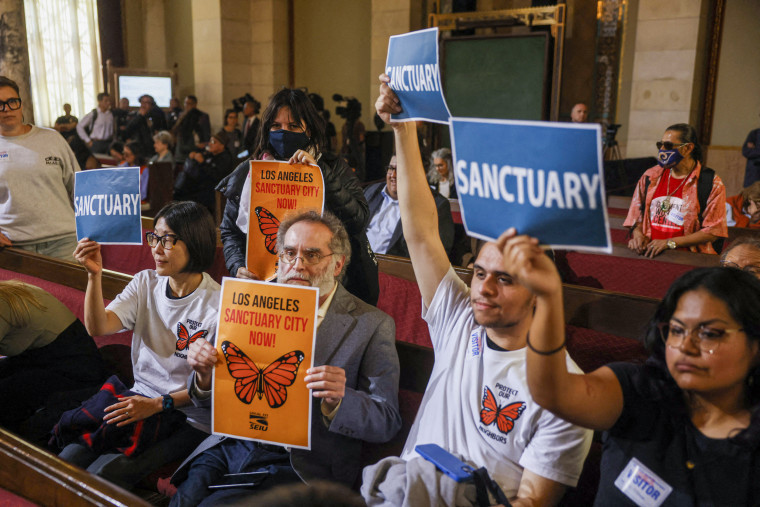
Local officials acknowledge the ordinances and declarations can’t stop deportations, but they say the tactics can tie up efforts and slow enforcement.Etienne Laurent / AFP – Getty Images
The incoming president has said he has “no choice” but to deport people living in the country illegally, telling NBC News “there is no price tag” on getting the job done.
A spokesperson for the incoming Trump administration did not respond to a request for comment.
Opponents of mass deportation say it will tear families apart and make communities less safe as unauthorized residents stop reporting crimes and sharing information with police out of fear they will be deported. Detractors also say it’s inhumane to send people back to the countries they fled because of gang violence, drug cartels and extreme poverty.
“Sanctuary cities are not just a legal framework,” Los Angeles City Councilmember Curren D. Price Jr. said recently. “They represent a moral commitment to upholding human dignity, protecting families and ensuring that everyone, regardless of their immigrant status, can live without fear.”
Supporters argue that illegal immigration contributes to crime, keeps wages low and takes away jobs from U.S. citizens. Incoming border czar Tom Homan, who was deputy director of ICE during Trump’s first term, has said the president-elect has a “mandate from the American people” to secure the border and crack down on illegal immigration.
Homan has also warned against attempts to thwart enforcement, telling Fox News he was willing to jail Denver Mayor Mike Johnston after Johnston said he would risk arrest to resist Trump’s plan and encouraged people to protest in their communities.
“We’re not waiting to January,” Homan said Tuesday while touring the border in Eagle Pass, Texas, referring to when Trump takes office. “We’re already talking. We’re already planning. We’re gonna put a plan in place and secure this nation at the highest levels ever seen.”
“Let me be clear, there is going to be a mass deportation,” he added.
Johnston’s office did not respond to a request for comment.
Trump is expected to sign up to five executive orders on immigration after he is sworn in on Jan. 20 and is considering withholding federal police grants from law enforcement agencies that decline to aid in deportations.
He undertook a similar strategy during his first term but faced significant legal hurdles and could face them again, said Hiroshi Motomura, co-director of the Center for Immigration Law and Policy at UCLA.
In 2018, the Trump administration attempted to withhold federal grants from cities that adopted sanctuary policies. Several of those cities sued the Justice Department and won their challenges in federal court.
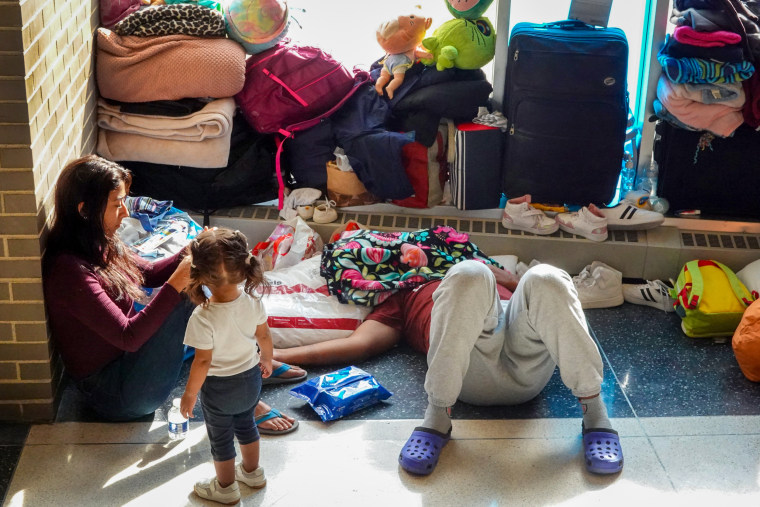
Migrants in the lobby of a Chicago police station in 2023.Scott Olson / Getty Images file
“The cases made clear that there are limits on the federal government’s power to order state and local governments to do things,” Motomura said.
Shortly after the Nov. 5 election, California Gov. Gavin Newsom declared the state would “Trump-proof” itself from the incoming administration by calling a special legislative session focused on safeguarding progressive policies. Those sessions begin in December.
A week after his announcement, the city of Los Angeles passed a law that prohibits its resources, including city employees and the police department, from being used to carry out federal immigration enforcement.
An estimated 951,000 of Los Angeles County’s 10 million residents are estimated to be living in the U.S. without authorization, according to the Migration Policy Institute, a nonpartisan think tank.
This month, the Los Angeles school district declared itself a sanctuary for immigrants and the LGBTQ+ community, adopting resolutions that reassert schools as safe havens from immigration enforcement and that prevent employees from voluntarily sharing the immigration status of students and their families with federal agents.
An LGBTQ+ resolution updates district policy reinforcing “the respectful treatment of all persons to include gender identity and gender expression.”
Of the Los Angeles Unified School District’s 400,000 students, roughly 30,000 are thought to be in the country without legal documentation, according to the United Teachers Los Angeles union.
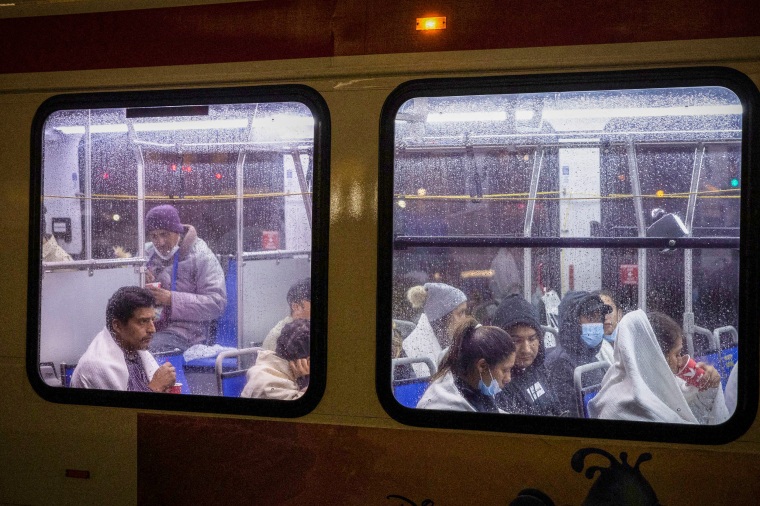
An estimated 47,000 people are living in Philadelphia without legal authorization.Ryan Collerd / AFP via Getty Images file
In Boston, Mayor Michelle Wu told WCVB-TV that she will protect immigrants without legal status in “every way possible.” Similarly, Massachusetts Gov. Maura Healey said on MSNBC that she would use “every tool in the toolbox” to “protect our residents” and to “hold the line on democracy and the rule of law.”
Chicago Mayor Brandon Johnson said the city “will not bend or break” to harsh immigration policies.
“Our values will remain strong and firm,” he told reporters after the election. “We will face likely hurdles in our work over the next four years, but we will not be stopped and we certainly will not go back.”
In Chicago, about 257,000 residents are undocumented; in Boston, about 173,000; and in Philadelphia, an estimated 47,000.
During Trump’s first term, his administration deported about 1.4 million people. President Joe Biden is on track to deport about 1.6 million people by the time his term ends, according to the Migration Policy Institute. About 3 million people were deported during former President Barack Obama’s tenure.
Trump deported fewer people than both Democratic presidents in part because sanctuary policies adopted by left-leaning cities and states prevented law enforcement agencies from cooperating with federal immigration agents, who often need local data and facilities to execute arrests and detentions.
Naureen Shah, deputy director of Government Affairs, Equality Division with the American Civil Liberties Union, said organizations like hers learned valuable lessons during the first Trump administration and intend to frustrate the new White House at every turn.
“We can slow them down, prevent them from acting at the scale they want to act at,” she said. “We can sap their morale and stymie their momentum.”




